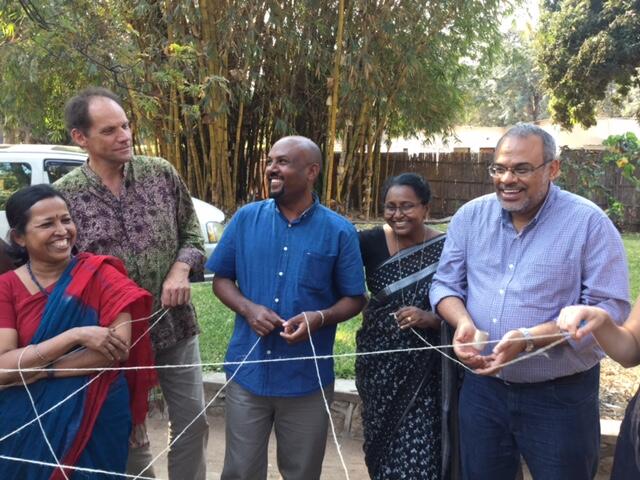
LSTM based REACHOUT consortium has held its final meeting in Malawi. The consortium, which focuses on understanding and supporting frontline close-to-community providers (such as Community Health Workers) in Malawi, Mozambique, Kenya, Ethiopia, Bangladesh and Indonesia, was a five-year project which involved a context analysis in each country informing two rounds of quality improvement cycles to strengthen close to community services.
LSTM’s Dr Miriam Taegtmeyer, REACHOUT PI, explains that “referral challenges and lack of supportive supervision processes emerged as key common challenges during two quality improvement approaches that we used over three years. In the two years that we have been using a locally led approach to identify and work on problems, we have worked to support and train districts teams. We have helped to build capacity so that issues, such as data quality identified by the teams in Salima, can also be addressed.”
During the final consortium meeting a Knowledge Café was held in Lilongwe to discuss the impact and processes involved in developing group supportive supervision processes for Health Surveillance Assistants in two Malawian districts. The team also had the opportunity to see this first hand and meet groups of Health Surveillance Assistants who were part of the intervention in Salima.
This quality improvement process has led to improvements in data quality, motivation and strengthened Health Surveillance Assistants’ ability to address community health concerns. During the Knowledge Café, and a subsequent field visit, colleagues from across the consortium discussed the impact of supportive supervision processes in other African and Asian contexts.
“This is the strength of REACHOUT” says LSTM’s Professor Theobald, co-leader of REACHOUT “generating and actively communicating evidence across multiple contexts on the best ways to support close-to-community providers in linking communities and health systems and promoting universal health coverage.”
The meeting was concluded with a productive writing retreat. To date the REACHOUT consortium has produced over 20 papers and the team worked hard, individually and in small groups, to develop further outputs. An additional eight academic papers, six blogs, four briefs and four panel abstracts are in development. REACHOUT’s success lies in collaborative and supportive capacity strengthening relationships, with many junior researchers first authoring papers for the first time. Papers and briefs have also been co-authored with policy makers and practitioners and this has fostered both ownership and scale up on quality improvement cycles. The evidence generated in REACHOUT will feed into future programmes in REACHOUT partner countries and in international debates – through for example the Health Systems Global Thematic Working Group “on Supporting and Strengthening the Role of Community Health Workers in Health System Development Community Health Workers”.
Please visit The REACHOUT website to read more.